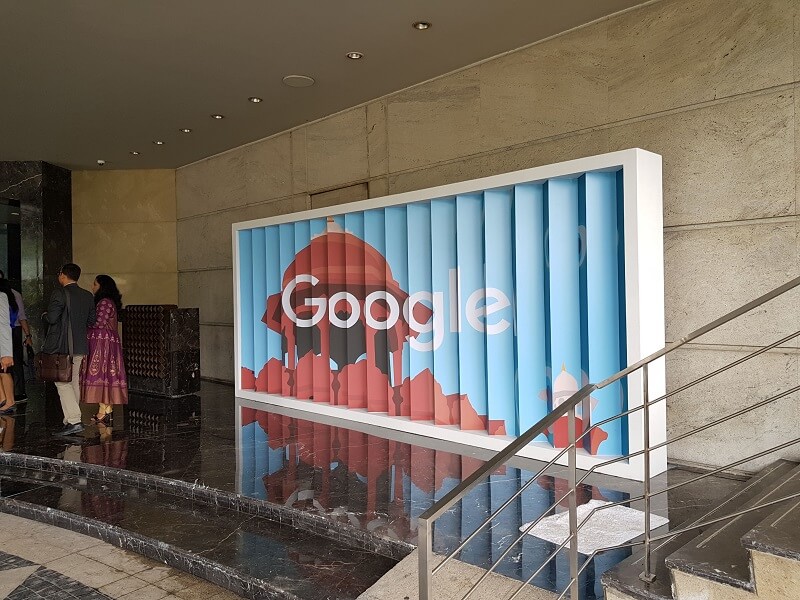More than 30 European media groups have sued Google for €2.1 billion in lost revenue, claiming it was caused by the search giant’s anticompetitive advertising technology.
Geradin Partners and Stek, two European legal firms, filed the action in Amsterdam’s District Court on behalf of companies including Germany’s Axel Springer.
The publishers argue that Google’s alleged wrongdoing has made online publication less competitive. They contend that if Google hadn’t abused its market dominance, internet advertising revenue would be higher and adtech service prices would be lower.
READ MORE: Prosecutors Failed To Prove Google Illegally Monopolized Search, The Company Argues
The coalition’s allegations are based on the French competition authority’s 2021 judgment that Google prioritized its own advertising services in ways that damage competitors. Google was fined €220 million as a result.

The current case also relies on the European Commission’s declaration of objections to Google’s advertising business made in June, as well as competition litigation against the ad behemoth by the US Justice Department and State Attorneys General. The UK Competition and Markets Authority is still conducting an antitrust investigation into Google ad tech, which began in May 2022.
“Enough time has been spent getting to the heart of Google’s wrongdoing in ad tech, which is now plain for all to see,” said Damien Geradin, founder of Geradin Partners. “It is high time that Google is held accountable for its abuses and compensates the victims – Europe’s diverse and vital media sector.”
READ MORE: California Settles With Google Over Location Privacy Violations For $93 Million
Google believes that its adtech products benefit European publishers.

“Google works constructively with publishers across Europe – our advertising tools, and those of our many adtech competitors, help millions of websites and apps fund their content, and enable businesses of all sizes to effectively reach new customers,” Oliver Bethell, director of legal affairs at Google, told The Register. “These services develop and evolve in collaboration with the same publishers. This litigation is speculative and opportunistic. We will strongly reject it based on facts.”
The case comes amid a media collapse caused by the deprioritization of news distribution on social media, decreased online traffic to news websites, shifting ad expenditures, business layoffs, and other issues.
The recent loss of hundreds of positions at Vice Media, as well as layoffs at Engadget, are just a few examples of diminishing staffs at once-thriving companies.
Google has had a difficult relationship with news organizations since 2006. That year, Copiepress, a Belgian/French/German newspaper trade group, sued Google News, claiming that the news aggregation service violated the newspaper’s copyrights.

Google was found guilty of infringement in 2007, and the decision was upheld in 2011. Google then withdrew Copiepress member links from Google News and Google Search, resulting in decreased visitor traffic. Following some discussion, the news sites were reinstated in the Google Search index.
Google started the Google News Initiative in 2018 with the stated goal of assisting news companies in adopting more digitally focused business methods.
‘Help’ now extends to Generation AI.
According to AdWeek, Google’s assistance now includes paying some publishers a five-figure payment to employ an unpublished suite of generative AI tools designed to create content.
“The beta tools let under-resourced publishers create aggregated content more efficiently by indexing recently published reports generated by other organizations, like government agencies and neighboring news outlets, and then summarizing and publishing them as a new article,” the company said.
That sounds like Google is encouraging the creation of AI-authored material rather than traditional news reporting, which requires journalists. However, Google dismissed the allegation as ridiculous.
“This speculation about this tool being used to re-publish other outlets’ work is inaccurate,” a Google official told The Register. “The experimental tool is being responsibly designed to help small, local publishers produce high-quality journalism using factual content from public data sources – like a local government’s public information office or health authority.”
“Publishers retain full editorial control over what is ultimately published on their website. These tools are not designed to and cannot replace the critical role that journalists play in reporting, writing, and fact-checking their pieces.”
That means Google wants its tools to be used to make summaries of public documents such as government reports, which has ramifications for any news organization that would assign that duty to a human journalist.
A year ago, Google confirmed (or attempted to clarify) its AI content guideline for Google Search. While AI can be used to automate the creation of web spam, the search industry claims that it can also generate useful material.
“Automation has long been used to generate helpful content, such as sports scores, weather forecasts, and transcripts,” Google claimed on its developer page. “AI has the ability to power new levels of expression and creativity, and to serve as a critical tool to help people create great content for the web.”
Radiant TV, offering to elevate your entertainment game! Movies, TV series, exclusive interviews, music, and more—download now on various devices, including iPhones, Androids, smart TVs, Apple TV, Fire Stick, and more.


